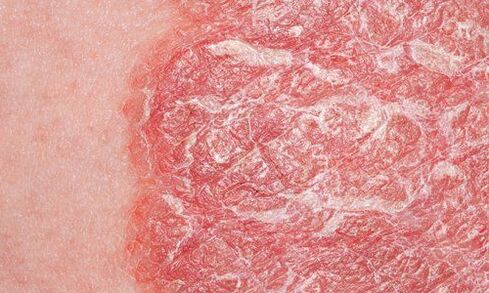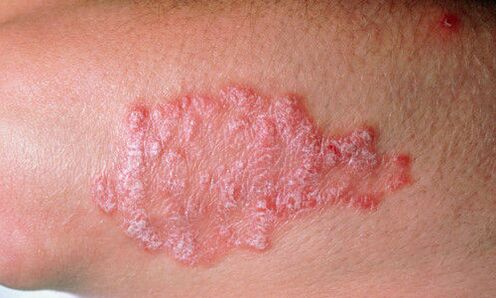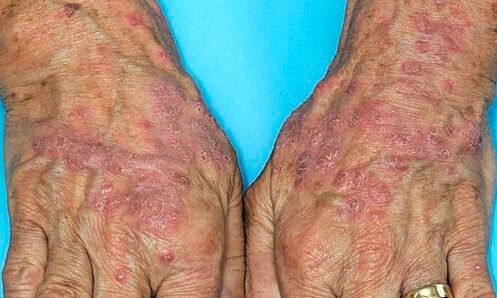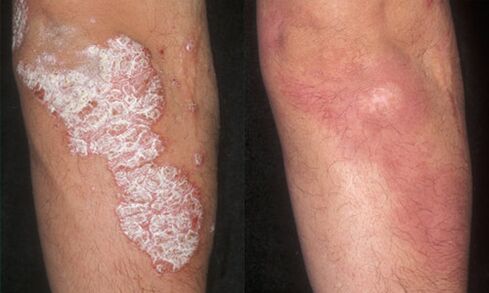Skin diseases are irritating on their own. And if even long-term systematic treatment does not guarantee a satisfactory outcome, the situation becomes a real problem.
Psoriasis (squamous lichen) is a disease with a "rich" history thousands of years old. Although this disease has been claimed to be incurable, it seems that everyone is willing to help in curing it.
Sensational drug announcements abound with step-by-step cures, promised cures by miracle devices and "advanced technology, " healers, and Internet forums. Dermatologists also don't sleep and do everything they can, researching and testing new drugs, but they don't promise miracles as a result of treatment.
What is Psoriasis?
Psoriasis is called a dermatological disease. In this chronic non-communicable disease, skin cell division occurs 28 times faster than normal. The cells do not have time to fully mature, their cell-to-cell communication is disrupted, resulting in thickening of the upper layers of the skin and the formation of pronounced patches and scales.
During the course of the disease, cells of the immune system attack the skin's own cells, so this process is accompanied by chronic autoimmune inflammation. The large foci formed can form their own blood vessels, penetrated by capillaries, within themselves.



Causes of psoriasis. Can they be infected?
The course and course of psoriasis was first described by an English physician Robert Willen in the early 19th century. The disease was eventually distinguished from leprosy, whose non-infectious nature wasproven and, therefore, cannot transmit the disease from other people. From that moment, active research began, which has not stopped to date. But, alas, not much results. . .
There are many versions of the onset of the disease, mainly of which are related to genetics, but ultimately it remains unconfirmed. It is known that psoriasis can occur at any age, and in recent years this disease has become more and more markedly "rejuvenating" and is recognized even in infants.
Symptoms of Psoriasis
There are several types of psoriasis. The main type of disease - plaque (or common) psoriasis - is detected in 80 percent of patients. It is characterized by the appearance of small scaly spots that develop and merge into large spots - psoriatic plaques. Their surface is covered with silvery-white scales, which easily separate from the skin when combed.
Plaques can be on any part of the body - on the legs, back, shoulders, scalp and face, but initially appear in places subject to one or another friction: on the elbows, on the roadbelts (due to the pressure of the belt and clothes), in places with tight underwear pressure. With exacerbations, the patches develop, gradually spreading in different directions. As a rule, this process is systemic and occurs once or twice a year.
Recession periods are associated with
- general weakening of the immune system,
- stress,
- eating disorders and
- other reasons (cosmetic, drink or food abnormalities).
If left untreated, psoriasis can often develop unpleasant consequences such as nail psoriasis, granulomatous psoriasis, and psoriasis, psoriatic arthritis, and more. v.
How to cure psoriasis
The first attempts to treat psoriasis were made in ancient Greece, where they discovered the beneficial effects of sunlight on skin conditions. In addition, ancient physicians used a mixture of oils and fatty acids, the remains of which were found near burial sites. In the Middle Ages, psoriasis was considered a "seal of the devil" and a type of leprosy: people were isolated from society in the leper colony, which led to a sad end.
At present, the following concept has been formulated: the patient should be under mandatory monitoring by a dermatologist and systematically treated, including oral vitamin B, calcium gluconate, nicotinic acid, antihistamines, and anti-inflammatory drugs. . The drug is used to cleanse the liver, which plays an important role in the condition of the skin.
Appointments are completely individual, taking into account concurrent illnesses. An important role is given to the external treatment of psoriasis, whose purpose is to eliminate the superficial process. Salicylic ointment is used in combination with hormonal agents, a new drug has recently been successfully tested - an ointment, an analogue of vitamin D. pathological processes in psoriasiscandle.

Ointment does not fundamentally solve the problem, but it significantly improves the condition of the skin, reduces flaking and facilitates disease progression without the side effects of very rich hormonal ointments. Patients are advised to use a daily body moisturizer, diet and vitamins, as well as an annual spa treatment. Timely and regular treatment allows you to achieve a period of remission, that is, to mask the manifestations of the disease for a long time.
The initial method of treating psoriasis is to use Garra rufa fish, which eat the skin on the psoriasis patches without touching the healthy areas. For the first time, fish began to be used in thermal resorts in Kangal (Turkey), but then they appeared in a number of clinics and beauty salons.
Another perspective on psoriasis treatment
Many people with psoriasis are exposed to stress and a negative attitude to the world around them, which exacerbates the course of the disease. It is much easier for people who can have a positive attitude towards this disease and learn to live with it, preventing exacerbations in time with adequate treatment. In this, they are supported by a number of researchers, who consider the disease nothing more than a gift from nature.
It has been found that psoriasis patients look 10 years younger than their peers and their bodies cope with injuries and medical problems much faster than the general population. The proliferation of cells, which have an active role in the pathological process, plays an active role in the healing phases.
The skin is protected from radiation and ultraviolet rays by its high antioxidant content, so people can spend hours in the sun without fear of an overdose. They are also protected from cancer, because diseased cells that fail quickly die and are replaced by healthy cells.
According to the biophysicist and author of the most optimistic theory, psoriasis is a long-term experiment of nature. In his view, psoriasis patients are the carriers of humanity's golden genes, which prepare nature for the future survival of humans in extreme conditions. After all, the state of health of people whose cells are born and die at an extreme rate are resistant to many negative factors.
However, psoriasis is not the cause of depression and limits a person's social activities. It is completely possible to "follow that person's will", you just need to be a little more concerned with your own health and skin condition. Furthermore, participation in a world-scale trial mandates this.























